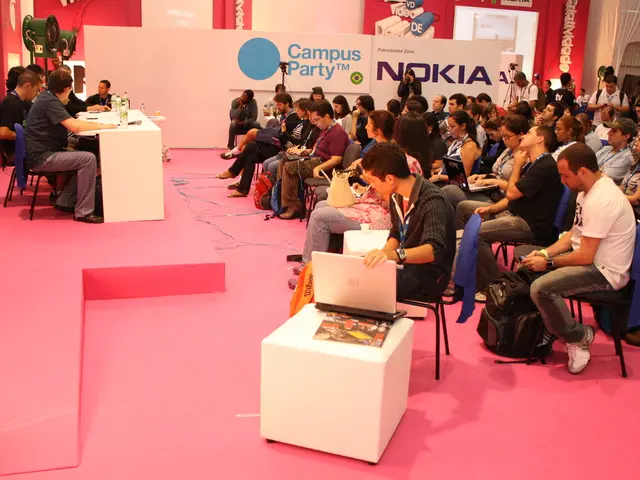Media titans Disney and NBCUniversal have initiated a lawsuit against the artificial intelligence-powered image generator, Midjourney.
Artificial Intelligence Faces Legal Scrutiny as Disney and NBC Universal Sue Midjourney
Mickey, Spiderman, Homer Simpson, and Darth Vader join forces to take on AI. Disney and NBCUniversal have filed a lawsuit against AI image generation platform Midjourney, alleging the company's use of their content without permission.
To generate texts, images, or videos, AI platforms, like Midjourney or ChatGPT, often scrutinize billions of media samples, a practice these companies argue doesn't infringe on copyright. However, Disney and NBCUniversal (a subsidiary of cable operator Comcast) view Midjourney as a "digital distributor that generates, infinitely, unauthorized copies of works" produced by the studios of these entertainment giants.
Similarity Galore
The court filing submitted to the federal court in Los Angeles and published by Variety showcases numerous examples of images generated by Midjourney that closely mimic iconic characters from Star Wars, Marvel Universe, or DreamWorks animated films. Neither Disney nor NBCUniversal obtained Midjourney's consent to use their content, but the platform persisted in this unauthorized use.
The two media conglomerates demand Midjourney cease using their intellectual property without permission, return the generated revenue, pay damages and interest, which could amount to approximately $150,000 per work. Midjourney has not yet responded to AFP's request for comment.
Copyright Headaches
AI platforms face numerous legal challenges when using copyrighted content without explicit consent. They can be sued for copyright infringement if their AI models are trained on copyrighted images or characters without authorization, as Disney and Universal have done with Midjourney. There's also the risk of indirect or secondary liability, as platforms may be held responsible for facilitating the creation or dissemination of infringing works.
Fair Use and Legal Defenses
Platforms might argue that their use of copyrighted materials for AI training constitutes fair use or transformative use, which adds new expression, meaning, or message. However, the boundaries of these defenses in the context of AI-generated content are still being determined by the courts.
Uncertainty and Industry Impact
Little settled law specifically addresses AI-generated content and copyright, leading to uncertainty for both platforms and rights holders. The legal challenges posed by major studios could result in stricter regulations or licensing requirements for AI platforms, potentially limiting the technologies' scope and capabilities.
Potential Outcomes and Business Risks
If found liable for infringement, platforms may face substantial financial penalties. Injunctions could require platforms to stop using infringing materials or even cease operations in certain markets. Forced licensing or partnerships with entertainment companies could increase operational costs.
Ethical Concerns and Innovation vs. Protection
Even if not legally liable, platforms may face backlash for perceived exploitation of copyrighted material. This legal landscape presents a tension between fostering innovation in AI and protecting established rights holders.
In summary, AI image generation platforms like Midjourney find themselves in the crossfire of a legal battle, with prominent entertainment companies safeguarding their intellectual property rights and testing the boundaries of established copyright law in the digital era.
AI platforms must navigate legal challenges when using copyrighted content, such as Disney and NBCUniversal's material, without explicit consent. In the ongoing lawsuit against Midjourney, technology's potential for entertainment and innovation clashes with the need for justice and the protection of intellectual property rights.








